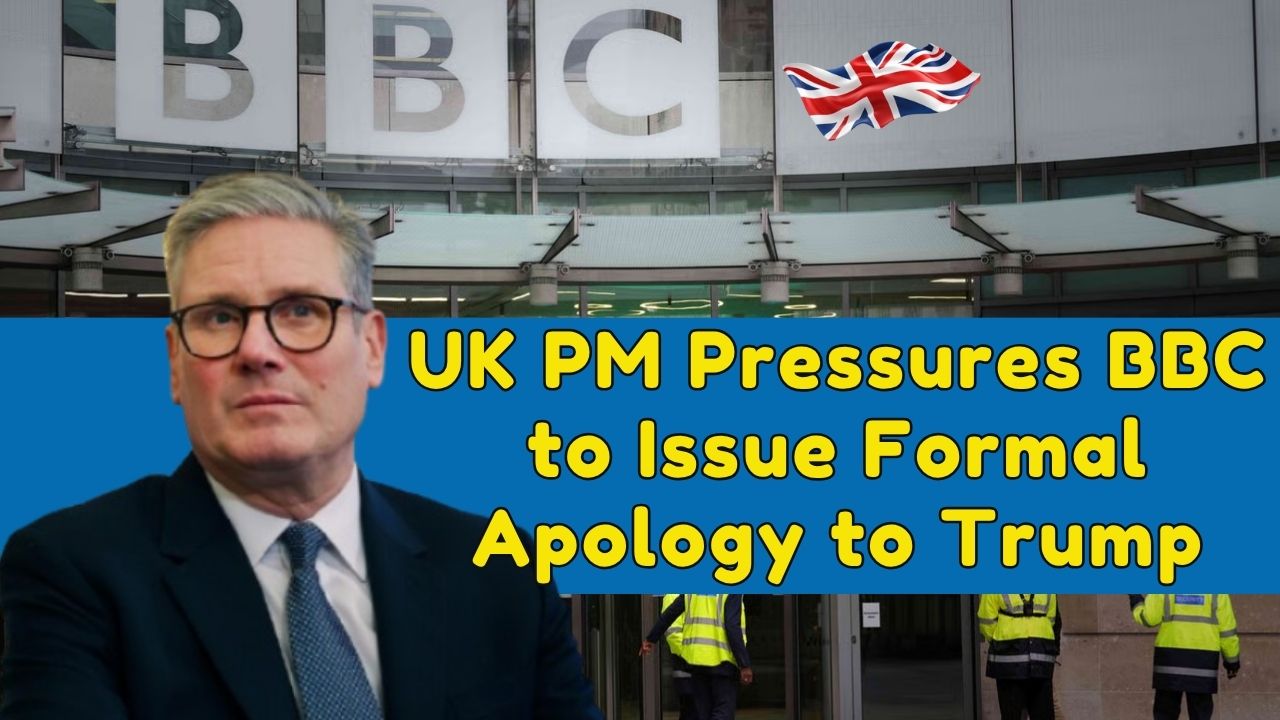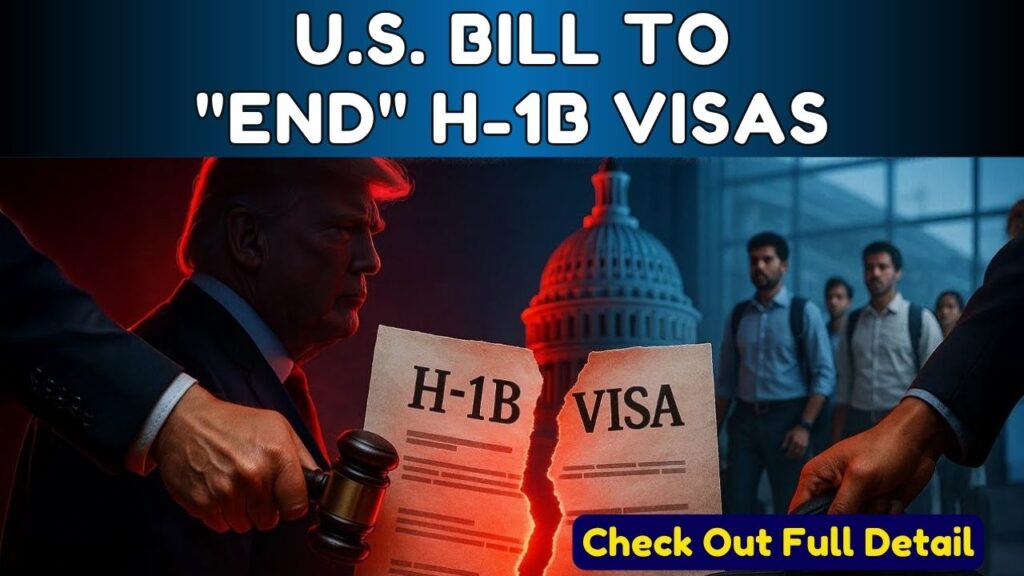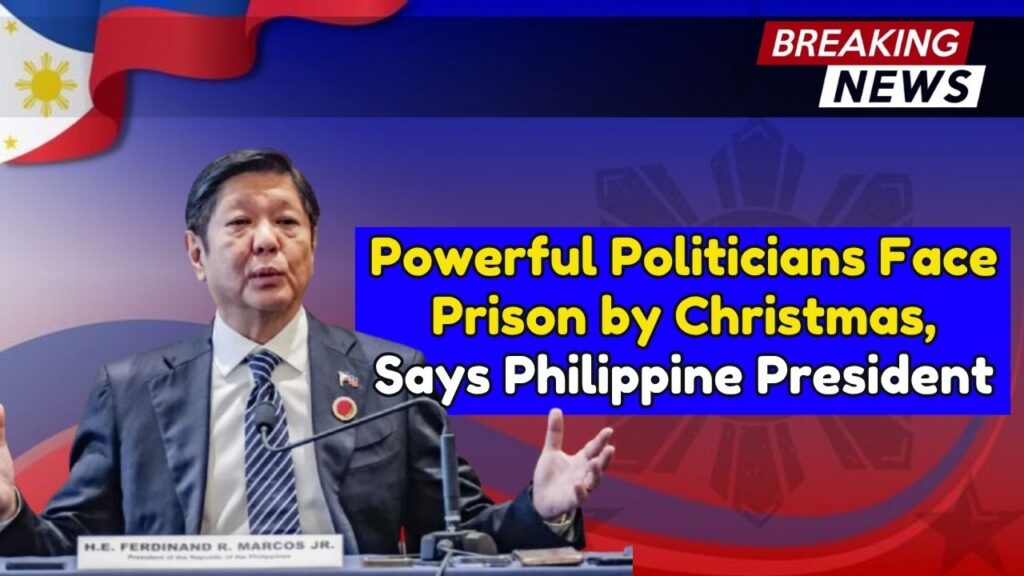The relationship between politics, media and public trust is under intense scrutiny in the United Kingdom and the United States. A fresh controversy has erupted after US President Donald Trump accused the BBC of misleading editing in a documentary and threatened to sue the broadcaster for 1 billion dollars.
British Prime Minister Keir Starmer has now stepped into the debate, calling on the BBC to uphold the highest editorial standards, correct its mistakes quickly and maintain public confidence, while still defending the principle of an independent public service broadcaster.
This incident comes at a time when the BBC is preparing for important negotiations over its next Royal Charter, making the outcome of this row particularly sensitive.
How The Dispute Started

The controversy centres on a BBC documentary that aired last year. The programme included an edited clip of a speech by Donald Trump in the period leading up to the 6 January 2021 assault on the United States Capitol.
In the edited version, the segment made it appear as though Trump told supporters that he would walk with them to the Capitol and that they needed to “fight like hell.” However, the fuller version of the speech also included lines in which he told the crowd that they would “cheer on” members of Congress and senators, language which his supporters say softens the impression of a call to violent action.
Critics argue that by cutting out these lines, the BBC created a misleading impression that Trump directly urged violence. The BBC has since acknowledged an “error of judgment” in the editing process and apologised for the way the clip might have been interpreted, but the fallout has grown far beyond a simple editorial correction.
Short Summary Of The BBC Trump Lawsuit Row
Point |
Details |
|---|---|
Main Issue |
President Trump accuses BBC of misleadingly editing his speech in a documentary |
UK Prime Minister’s Position |
Keir Starmer backs a strong, independent BBC but says it must correct errors quickly |
Legal Threat |
Trump’s lawyers have threatened a 1 billion dollar defamation lawsuit |
BBC Response |
Senior resignations, public apology, and a review of the legal letter from Trump’s team |
Public Opinion |
57 percent of Britons think the BBC should apologise directly to Trump, says YouGov |
Key Political Risk |
Row unfolds ahead of BBC’s Royal Charter renegotiation, due by 2027 |
Issue At Stake |
Media trust, editorial standards, press freedom and international political relations |
Country |
United Kingdom |
Official Site Link |
Trump’s Legal Threat And Public Comments
On Monday, Trump’s lawyers sent a formal letter to the BBC warning of a potential defamation lawsuit worth 1 billion dollars, accusing the broadcaster of misrepresenting the president’s words and “defrauding the public.” The BBC confirmed that it had received the letter and said it would review its contents.
In a later interview with Fox News, recorded the same day, Trump was asked directly whether he intended to sue the corporation. He replied that he “guessed” he had to do it and described the lawsuit as an “obligation” because, in his view, media outlets should not be allowed to mislead people in this way.
Although Trump did not confirm that legal proceedings had formally begun, he insisted that the BBC had already admitted wrongdoing by acknowledging an error of judgment in editing. He tied the issue to broader themes, pointing out that Britain is supposed to be one of Washington’s closest allies and highlighting that the government has a financial stake in the publicly funded broadcaster.
This dispute adds to a pattern in which Trump has been accused of using lawsuits or legal threats against media organisations to challenge coverage that he considers unfair or damaging.
Keir Starmer’s Response: Support With Conditions
Addressing the issue in the House of Commons, UK Prime Minister Keir Starmer took a careful line. He repeated his support for a “strong and independent BBC,” emphasising its importance to British democracy and public life. At the same time, he made clear that independence does not mean freedom from accountability.
Starmer stated that the BBC must “uphold the highest standards” and act quickly to correct serious editorial mistakes. When asked if he would urge Trump to drop his legal threat, the prime minister did not directly call on the US president to back down. Instead, he shifted the focus back onto the BBC’s responsibility to put its own house in order when errors occur.
This careful balancing act reflects the Labour government’s desire to protect the principle of editorial independence without appearing to side automatically with the broadcaster against an important international partner.
BBC Leadership Crisis And Institutional Fallout
The controversy has already reshaped the BBC’s internal leadership. Both the director general of the BBC and the corporation’s top news executive resigned on Sunday in the wake of the row over the edited speech. Their departures underline how seriously the issue is being treated inside the organisation.
BBC chair Samir Shah issued a public apology describing the editing as an “error of judgment” and committing to review what went wrong. The corporation has also said that it will carefully study the letter from Trump’s legal team and respond through proper channels.
These resignations come at a delicate moment for the BBC. The organisation is facing continuing debates over its funding model, questions over impartiality from both left and right, and the looming renegotiation of the Royal Charter, which will set out its governance arrangements beyond 2027.
Public Opinion And Political Sensitivity
The British public appears divided but leans toward the view that the BBC owes Trump a more direct apology. A YouGov poll published on Tuesday found that 57 percent of respondents believe the broadcaster should apologise to the US president personally, while about a quarter of those surveyed oppose such a move.
This split reveals a complex set of attitudes. Many citizens want to see high editorial standards and fairness, regardless of their personal views of Trump. Others worry that apologising too readily might embolden politicians to pressure the media or could be read as the BBC taking sides in an American political dispute.
For the government, the timing could hardly be more awkward. The BBC’s Royal Charter renegotiation will involve tough discussion about public funding, editorial independence and accountability mechanisms. Any sign that the government is either protecting or attacking the BBC for political reasons could lead to accusations of interference.
Media Freedom, Accountability And International Relations
The case raises broader questions that go beyond a single documentary. At its core, the argument is about how public broadcasters handle sensitive political content, especially when it involves foreign leaders.
Key issues include:
- How quickly and transparently editors acknowledge and correct mistakes
- Whether apologies and corrections are enough to restore trust in an era of polarisation
- How governments can support media independence while insisting on accountability
- The role of civil defamation lawsuits in resolving disputes between politicians and media organisations
Because the BBC is funded by licence fee payers and seen worldwide as a model of public service broadcasting, any perceived misstep attracts global attention. At the same time, Trump’s aggressive stance highlights the ongoing tension between political power and journalistic scrutiny.
What Happens Next
For now, several questions remain unanswered. It is not yet clear whether Trump will move from legal threats to a full defamation case in court. The BBC is still reviewing the legal letter and may seek to resolve the matter without a long and expensive trial.
The Labour government will continue walking a fine line, defending the BBC’s structural independence while repeating that the broadcaster must correct serious editorial failures. The outcome could influence future debates on how public service media should be regulated, funded and held accountable, both in the UK and internationally.
Whatever the legal result, this episode has already become a test case of how powerful politicians, national broadcasters and democratic governments navigate disputes in the age of instant global media and highly polarised public opinion.
Official Site For More Information
For official information, statements and updates from the BBC, readers can visit:
Official site link: https://www.bbc.co.uk
Frequently Asked Questions
1. What did Keir Starmer say about the BBC and the Trump dispute?
Keir Starmer said he supports a strong and independent BBC but emphasised that the broadcaster must uphold the highest standards, be accountable and correct errors quickly. He added that when mistakes are made, the BBC needs to “get their house in order.”
2. Why is Donald Trump threatening to sue the BBC?
Trump’s legal team accuses the BBC of misleadingly editing a speech about the events surrounding the 2021 US Capitol assault in a documentary. They argue that the edited version wrongly implied he was urging violent action. On that basis, they have threatened a defamation lawsuit worth 1 billion dollars.
3. How has the BBC responded so far?
The BBC has apologised for an “error of judgment” in the editing of the Trump speech and acknowledged that it may have given a misleading impression. The director general and the head of news have resigned over the controversy. The BBC has stated that it will review the letter from Trump’s lawyers and respond appropriately.
4. Why is this issue politically sensitive in the UK right now?
The row comes at a time when the BBC is approaching renegotiation of its Royal Charter, which sets out its governance and funding framework up to 2027 and beyond. Any controversy involving bias, standards or political pressure on the BBC is therefore particularly sensitive for both the broadcaster and the government.
5. What does public opinion in the UK say about the case?
According to a YouGov poll, 57 percent of Britons think the BBC should apologise directly to Donald Trump, while around one quarter are opposed to such an apology. This suggests that a majority of the public expects clear accountability from the broadcaster, even if they may have differing views about Trump himself.
For More Information Click HERE











